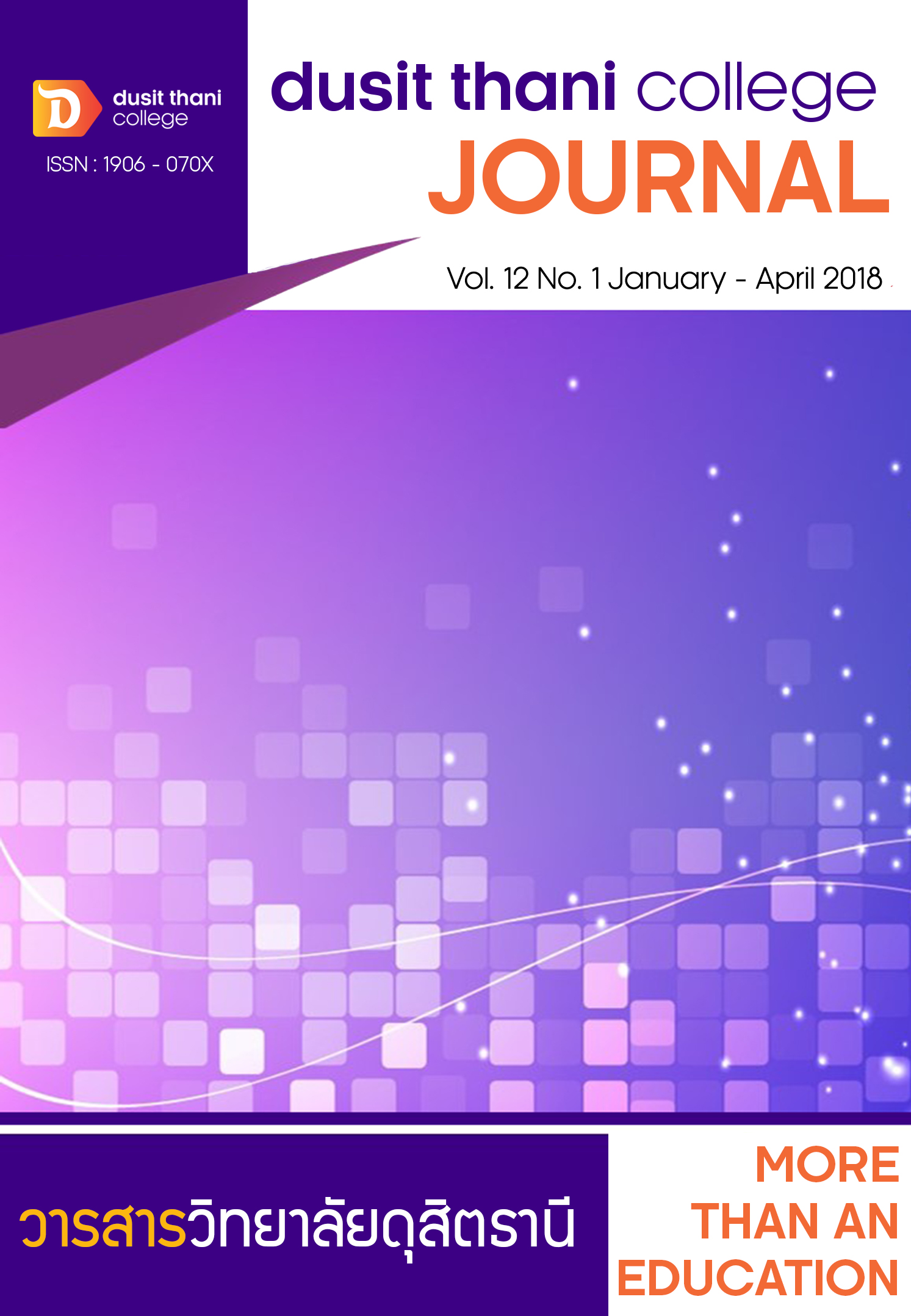Empowerment of the Civil Society Organizations’ Strategic Thinking to Create New Future for Nakornnayok Province
Main Article Content
Abstract
This research aimed to empower the civil society organizations of Nakornnayok province to learn the strategic thinking and propose their provincial development strategies. The target group of the study included 40 leaders and civil society representatives who were the members of Thailand Agriculture Council and officers from the provincial Tourism and Sport Authority. Research instruments included documentary analysis, questioning technique, reflection, questionnaires, discussions, discourse for transformative learning and reinforcing learning theories. Qualitative data were analyzed by content analysis while quantitative data were analyzed by frequency counts, percentages, and rankings.
Findings revealed that the target group learned ‘weaknesses’ of civil sector’s administration such as the lack of people’s participation in city development. Although, rich natural resource is significant ‘strength’, people, who are mostly in agricultural sector, were not successful in their careers. Internal factors, strengths and weaknesses, were related to ‘external factors’ which are facing ‘external investors’ who expect to benefit city’s natural resources. After empowering strategic thinking and transformative learning theory, there was an active driving process of changing Nakornnayok province under cooperation of public and civil society organizations. Nakornnayok’s vision was settled as “pleasant city to live, city of safety, city of generosity, city of trust, city of health, and city of learning”. To achieve such a goal, there were 4 strategies: The dialogue was used in the middle of the interaction between the target group and researchers to allow a transformative learning to take place. Research instrument were document analysis, questioning technique, reflection, brainstorm, discourse analysis and reinforcing learning theory. A content analysis was applied to the qualitative data obtained, whereas the data from questionnaire were analyzed for frequency and percentage. The findings showed that the target group learned the problems and the root of the problems by determining the direction of government development and the influence of the world. They also learned how to make changes that needed clarity in content and strategic approaches which enabled them to set the strategic development for Nakornnayok under the vision of building a pleasant city to live. To achieve such a goal, there were 4 strategies: 1) to conserve the nature, environment and biodiversity; 2) to enhance the career and economy of the small and medium businesses of community by creating value added and value creation for their agricultural products; 3) to improve people lifestyle by linking learning in school systems with community learning centers to give youths the opportunity to experience real local experiences, including the design of the city, landscapes, buildings, places and buildings of the city to better support life in the future; and 4) to create a learning-based society, building a strong community and strong community organization network.
Article Details
Article Screening Policy
- All research and academic articles to be published must be considered and screened by three peer reviews in the relevant field / article.
- All articles, texts, illustrations and tables published in the journal are the personal opinions of the authors. Editors don't always have to agree. And no responsibility whatsoever is the sole responsibility of the author.
- The articles to be published must never be published. Where did you first publish? And not in the consideration of other journals If the audit found that there has been a duplicate publication It is the sole responsibility of the author.
- Any article that the reader sees as being plagiarized or impersonated without reference. Or mislead the work of the author Please let the journal editor know it will be your greatest blessing.
References
Chareonwongsak, K. (2006). Strategic Thinking. 5th eds. Bangkok: Success Media.
Department of Provincial Administration. (2010). Administrative Information.
https://www.dopa.go.th/padmic/jungwad76/jungwad76.htm. Retrieved on
December 23, 2017. [online].
Ebersole. J. Glenn. (2017). Strategic Thinking: 11 Critical Skills Needed. Center for Simplified Strategic Planning, Inc. Ann Arbor, MI.
Mezirow, J. (2000). Learning as Transformation: Critical Perspectives on a Theory in
Progress. San Francisco: Jossey Bass.
Nakornnayok Province Official. (2016). Nakornnayok Province Information.
https://www.nakhonnayok.go.th / home/. Retrieved on December 20, 2016. [online].
O'Sullivan, E. (2003). “Bringing a Perspective of Transformative Learning to Globalized
Consumption.” International Journal of Consumer Studies, 27 (4), 326–330
Porter, Michael. E. (1980). Competitive Strategy. Free Press.
Tourism Authority of Thailand, 2016. Nakornnayok Province Information.
www.thai.tourismthailand .org. Retrieved on January 22, 2017. [online].
Tnews. (2017). Internal Security Operations Command (ISOC) promoted the management of people’s conflicts for the security and sustainability. www.tnews.co.th/contents/355325. Retrieved on December 24, 2017. [online].
Wandee Sutthinarakorn, Jintana Kanjanawisut, Siriporn Tanjor and Somkiat Sutthinarakorn.
(2015). “Good Management and Learning Routes to Enhance the Career Capacity and
Better Life of the Community Enterprises in Samut Sakhon Province in Progression of
their Community Economy Using the Philosophy of Sufficiency Economy”. Journal of
Industrial Education. 4 (1) 171 - 177.


